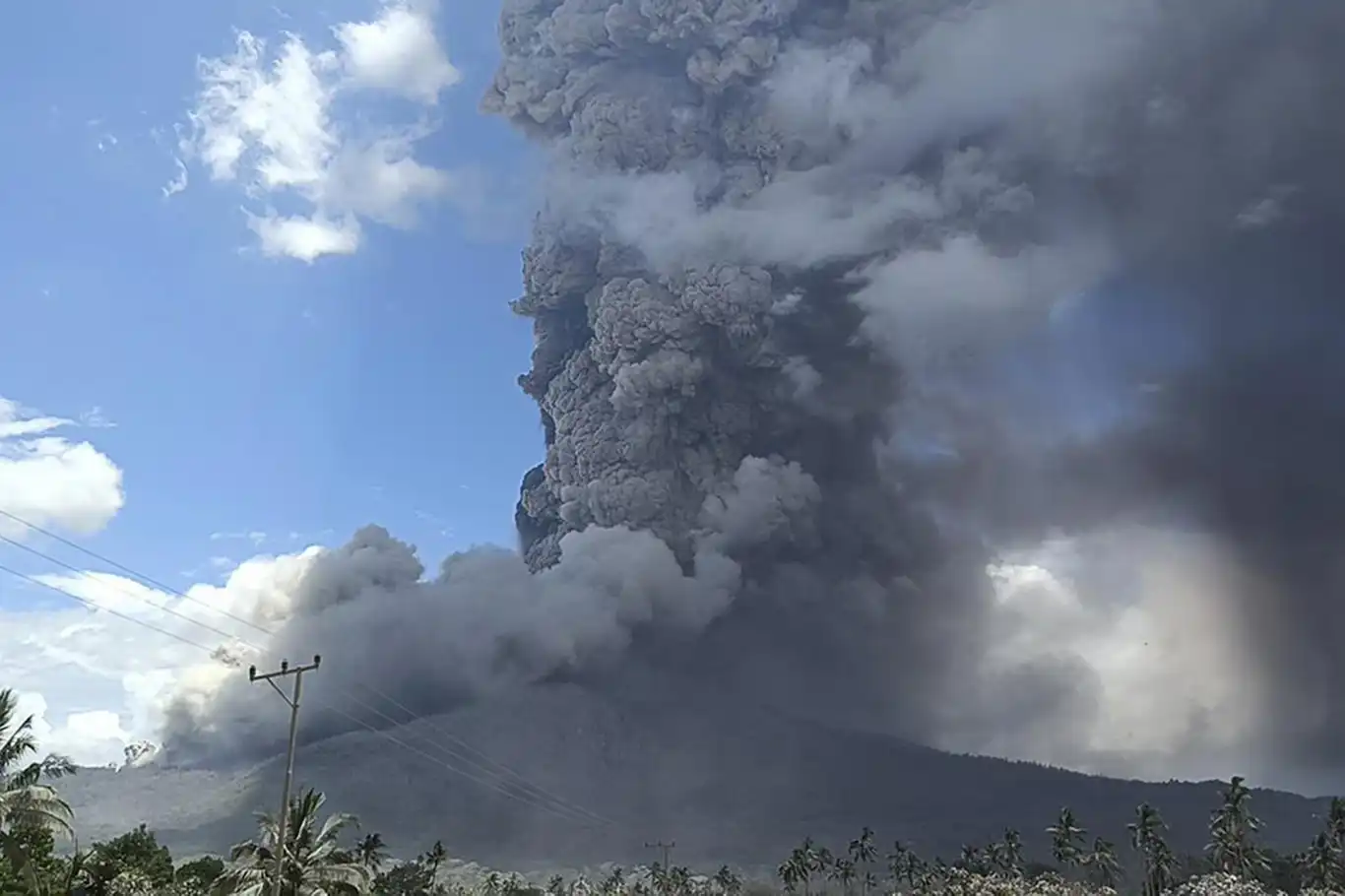Indonesia’s Mount Lewotobi explodes in twin eruptions


Mount Lewotobi Laki Laki, one of Indonesia’s most volatile volcanoes, erupted twice on Monday, sending towering columns of ash and volcanic debris high into the sky and prompting widespread disruptions across Flores Island and beyond.
The first eruption occurred just after 11:00 a.m. local time (0305 GMT), launching a massive plume of volcanic material up to 18 kilometers (11 miles) into the atmosphere—its most powerful explosion since November 2024. A second eruption followed later in the day, reinforcing fears of escalating volcanic activity.
Authorities reported no immediate casualties, though the eruptions triggered the evacuation of surrounding communities and caused significant infrastructure disruption. Villages within an 8-kilometer (5-mile) radius were blanketed in ash and gravel, with volcanic debris darkening the sky and blocking sunlight for nearly 30 minutes.
“This is one of the most powerful eruptions we’ve seen since Mount Merapi’s 2010 catastrophe,” said Muhammad Wafid, head of Indonesia’s Geology Agency, referring to the deadly eruption that killed 353 people.
Searing clouds of gas, rocks, and lava surged up to 5 kilometers (3 miles) down the mountain’s slopes, forcing emergency services into action. Drone footage showed lava pooling within the crater, indicating a deep magma surge that also triggered localized earthquakes.
Hadi Wijaya, director of the Center for Volcanology and Geological Disaster Mitigation, explained that pressure from blocked magma inside the crater had likely suppressed earlier seismic signals, increasing the potential for explosive outbursts. He warned that with heavy rain in the forecast, the risk of dangerous lava flows in surrounding rivers was rising.
In response to the heightened threat, officials expanded the volcano’s exclusion zone from 5 kilometers to 7 kilometers (4.3 miles), advising residents and tourists to steer clear of the danger zone. Authorities are also considering further expansions if activity persists.
The eruptions caused major travel disruptions, particularly in air traffic. At least 24 international flights between Bali and destinations including Australia, Singapore, and South Korea were canceled, along with four domestic routes. While Bali’s Ngurah Rai International Airport remained operational, airport spokesperson Ahmad Syaugi Shahab noted that ash clouds had not yet reached Bali’s airspace.
Videos circulating on social media captured dramatic scenes of the mushroom-shaped ash cloud looming over villages, with residents seen fleeing as volcanic debris buried homes up to their rooftops.
Indonesia, home to more than 280 million people, sits atop the Pacific "Ring of Fire," a seismically active region that houses 120 active volcanoes. Monday’s eruption underscores the ongoing threat posed by the nation's turbulent geological landscape.
Mount Lewotobi Laki Laki remains at its highest alert level following a fatal eruption in June. Authorities continue to monitor the situation closely, urging vigilance among residents as the mountain shows no signs of quieting. (ILKHA)
LEGAL WARNING: All rights of the published news, photos and videos are reserved by İlke Haber Ajansı Basın Yayın San. Trade A.Ş. Under no circumstances can all or part of the news, photos and videos be used without a written contract or subscription.
Iranian President Masoud Pezeshkian revealed in an exclusive interview with American journalist Tucker Carlson that Israel attempted to assassinate him, linking the failed plot to efforts to sabotage Iran-U.S. diplomacy.
Relentless monsoon rains have wreaked havoc across India’s northern state of Himachal Pradesh, claiming at least 78 lives and leaving dozens missing, state officials confirmed on Monday.
Israeli occupation forces launched a significant incursion into Syrian territory on Monday, penetrating the villages of Breika and Beer Ajam in the Quneitra countryside near the occupied Golan Heights.